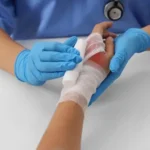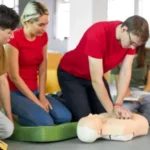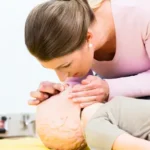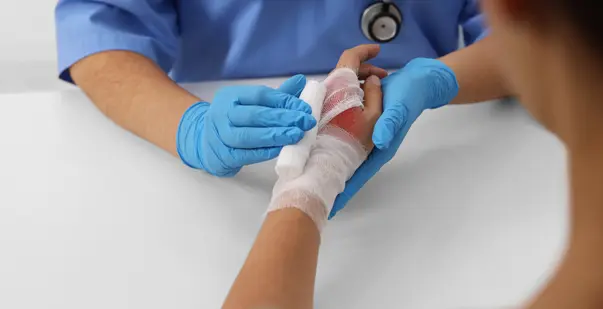There is a famous saying, “These days heart attacks do not come regardless of age”. Heart attacks, medically known as myocardial infarctions, occur when the blood flow to the heart is blocked, often by a clot. This blockage can lead to serious complications or even death if not addressed promptly.
The Heart Foundation says that one in five people don’t know the warning signs of a heart attack. Research suggests that up to 45% of cardiac events may be asymptomatic, which means that most people may not know they’ve had a heart attack until it’s too late.
Many people don’t know the signs of a heart attack and don’t call for help when they need to. But when you’re having a heart attack, time is super important. Waiting too long can hurt your heart even more.
Recognizing the signs and getting help fast could save your life or someone you care about. These signs may vary from person to person, but they often include chest pain, shortness of breath, and discomfort in other areas of the body.
In this guide, we’ll be exploring the common warning signs of a heart attack and discuss why it’s essential to be aware of them.
How to Identify Pre Heart Attack Symptoms?
Before we know what are the signs of a heart attack, we must understand that while some heart attacks happen suddenly, many people experience warning signs and symptoms hours, days, or weeks in advance.
Sometimes, early symptoms of a heart attack may not appear. But if symptoms do show up, they might include the following:
1. Chest Pain, Pressure, and Discomfort
Many people who have heart attacks feel some kind of pain or discomfort in their chest. But not everyone feels chest pain during a heart attack.
Chest pain is a common sign of a heart attack. Some people say it feels like a heavy weight is pressing on their chest.
Others might not call it pain exactly. They might say their chest feels tight or like it’s being squeezed. Sometimes this uncomfortable feeling lasts for a short while and then goes away. Other times, it might come back hours or even a day later. These could all be signs that your heart isn’t getting enough oxygen.
If you or someone near you feels chest pain or tightness, it’s important to call 911 right away.
2. Pain and Tightness can Radiate
Sometimes, when you’re having a heart attack, you might feel pain and tightness in different parts of your body, not just your chest. Many people think heart attacks only cause pain in the left arm, but that’s not always true. You might feel it in other places too, like:
- Your upper abdomen
- Your shoulder
- Your back
- Your neck or throat
- Your teeth or jaw
For women, heart attack pain can often be felt in the lower abdomen or the lower part of the chest.
Sometimes, the pain might not be only in your chest. It could feel like pressure in your chest and hurt in other places too. Women also commonly mention feeling upper back pain during a heart attack more than men do.
3. Sweating Throughout the Day
If you’re sweating a lot, especially when you’re not doing anything active, it might be a sign that your heart isn’t working well.
When your heart has to work harder because your arteries are clogged, your body sweats more to cool down. If you’re getting cold sweats or your skin feels clammy, it’s a good idea to see a doctor.
For women, sweating a lot at night could also mean heart problems. Sometimes women might think it’s just because of menopause, but if you wake up with wet sheets or you can’t sleep because you’re sweating so much, it could be a sign of a heart issue, especially for women.
4. Fatigue
Fatigue can be a sign of a heart attack in women, but it’s not always recognized. Some women might mistake heart attack symptoms for the flu.
When you have a heart attack, your heart has to work harder because blood flow is blocked. This can make you feel really tired. If you’re often tired for no reason, it might be a sign that something’s wrong.
Feeling tired and having trouble breathing are more common in women than in men. These symptoms can start months before a heart attack happens. That’s why it’s important to see a doctor early if you notice these signs of tiredness.
5. Shortness of breath
Shortness of breath can occur with or without chest pain, and it’s more common for women to experience it. When you breathe and your heart pumps blood, they work together closely.
Your heart pumps blood to send oxygen to your body and to pick up oxygen from your lungs. If your heart isn’t pumping blood well, like during a heart attack, you might feel short of breath.
Shortness of breath can also be a sign of unusual tiredness in women. For instance, some women feel very tired and out of breath even from simple activities like going to the mailbox.
This tiredness and breathlessness can be a more common sign of a heart attack in women than men.
6. Lightheadedness
Feeling dizzy or lightheaded might mean something’s wrong with your heart. That’s because if your heart isn’t working well, it might not be pumping enough blood to your brain and body. This lack of blood flow can make you feel dizzy.
Sometimes, after a heart attack, your heartbeat can become irregular, which can also make you feel lightheaded.
Some women say they feel like they might faint if they stand up or do too much. This isn’t normal, so if you feel this way, it’s important not to ignore it.
7. Heart palpitations
Heart palpitations can feel like your heart is skipping a beat or pounding hard. Normally, your heart beats steadily to pump blood through your body. But if it beats irregularly, it might be a sign of a heart problem, like a heart attack.
When you’re having a heart attack, palpitations can make you feel nervous, especially for women. Some folks say it feels like their heart is pounding in their neck, not just their chest.
It’s important not to ignore changes in your heart’s rhythm. If your heart keeps skipping beats, you need medical help to fix it. And if you feel dizzy, have chest pressure or pain, or faint along with palpitations, it could mean you’re having a heart attack.
8. Indigestion, Nausea, and Vomiting
Sometimes, before a heart attack, people might feel mild stomach issues like indigestion. This happens especially in older folks who often have stomach problems anyway.
So, they might think it’s just something they ate causing heartburn or stomach trouble. But if you usually don’t have stomach issues and suddenly get indigestion or heartburn, it could mean something more serious is happening.
What You Should Do During a Heart Attack?
If you think you or someone else is having a heart attack, you should call 911 or your local emergency number immediately. The sooner you get to the emergency room, the sooner you can get treatment to reduce damage to your heart muscle. You can also take the following steps if someone is having a heart attack:
1. Chew and swallow an aspirin
During a heart attack, it’s recommended to chew and swallow an aspirin, if not allergic. Aspirin is an antiplatelet medication that helps prevent blood clots from forming. Blood clots can block the coronary arteries, worsening the heart attack.
Chewing the aspirin allows for quicker absorption. However, it should not be given if the person has low blood pressure or is sweating excessively.
2. Take nitroglycerin, if prescribed
If prescribed, a person should take nitroglycerin during a heart attack. Nitroglycerin is a medication that can help relax and widen blood vessels, allowing more blood to flow to the heart. It’s typically placed under the tongue for quick absorption into the bloodstream.
However, it should only be used if prescribed by a healthcare professional, as it can have side effects and may not be suitable for everyone. Always seek immediate medical attention.
3. Begin CPR if the person is unconscious
If the person experiencing a heart attack becomes unconscious, it’s crucial to start cardiopulmonary resuscitation (CPR) immediately. CPR involves chest compressions and rescue breaths to maintain blood flow to the brain and other vital organs. It can double or even triple the chances of survival.
However, performing CPR incorrectly can cause harm. Therefore, it’s important to receive proper training. If you’re interested in learning how to perform CPR effectively, consider enrolling in a CPR certification course.
This training can equip you with the skills needed to respond appropriately in such emergencies.
4. Ask the patient to cough out
During a heart attack, it can be beneficial for the person to cough forcefully. This action helps force air into the lungs and can assist in maintaining blood circulation.
The increased pressure in the chest from coughing can help keep the blood flowing and may even correct an abnormal heart rhythm.
5. Do not let them lie down flat
During a heart attack, it’s advised not to let the person lie down flat. Instead, they should be positioned to sit upright or recline on a sofa. This position can help ease breathing and reduce the workload on the heart.
It also aids in maintaining blood flow and oxygen supply to the heart. However, this is a temporary measure and does not replace the need for immediate medical attention.
Conclusion
Being aware of the warning signs of a heart attack can make all the difference in saving lives. These symptoms may comprise chest pains, inability to breathe and uneasiness in other body parts would help them get prompt medical assistance which can help prevent further damage to the heart. Remember, early intervention is key. If you or someone you know experiences these symptoms, don’t hesitate to call emergency services. With proactive awareness and timely action, we can protect our hearts and ensure a healthier future for ourselves and our loved ones.












